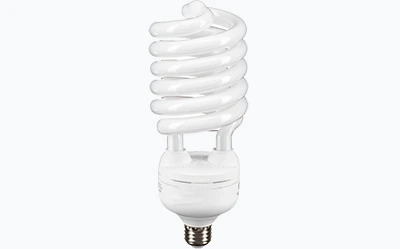Tel: 0129-4001010 Phone: +91 730 321 5033
Email: cs@absoluteveritas.com
BIS CERTIFICATION FOR SELF BALLASTED LAMPS IS 15111 (PART 1):2002
In today's competitive landscape, maintaining market presence without a certified, high-quality product can be challenging. Obtaining a BIS license may also be essential for selling products in the Indian market. To achieve BIS certification and ensure product quality, manufacturers must adhere to the specified Indian standards.
Let's delve deeper into IS 15111 (Part 1):2002 for self-ballasted lamps for general lighting services.
This standard outlines safety and interchangeability requirements, along with the necessary test methods and conditions for demonstrating compliance of tubular fluorescent and other gas discharge lamps with integrated starting and stable operation control (self-ballasted lamps). These lamps are intended for general lighting purposes in domestic and similar settings, and they possess:
-
a rated wattage up to and including 26 W,
-
a rated voltage up to and including 250 V, and
-
Edison screws E 14 and 27 or bayonet caps B 15d and B 22d
IS 15111 (Part 2) outlines the performance criteria for self-ballasted lamps.
Self-ballasted lamps should be engineered and constructed to ensure reliable operation and safety during normal use, without posing any risk to users or the environment. Compliance is confirmed through conducting all specified tests.
Self-ballasted lamps must be constructed to prevent access to internal metal parts or live metal parts of the lamp cap when installed in the lamp holder according to IS 1258 or IS 10276, without requiring additional enclosure. Adequate insulation resistance and electric strength must be maintained between the lamp's current-carrying metal parts and accessible parts. These lamps are factory-sealed, non-repairable units and should not be opened under any circumstances.
TESTS
The specified tests must be conducted.
-
Durability of marking
-
Interchangeability
-
Protection against electric shock
-
Mechanical strength
-
Dimensions
-
Power factor
-
Starting and run-up and some other
MARKING
Marking must adhere to IS 5111 (Part 1 & 2) standards, where lamps should display the trademark or manufacturer's name, along with details like rated voltage or voltage range, wattage, frequency, luminous flux, color temperature, and country of manufacture. Additionally, lamp manufacturers are required to provide specified information on the lamp, packaging, or installation instructions as per standard requirements. Self-ballasted lamps are also eligible for the Standard Mark (ISI Mark).
Manufacturers must obtain a BIS license for self-ballasted lamps from the Bureau of Indian Standards to utilize the standard mark (ISI Mark). The license is granted after a thorough assessment of manufacturing infrastructure, processes, quality control, and testing capabilities during an on-site visit to the manufacturing premises by BIS.
PROCESS FOR BIS ISI MARK CERTIFICATION

BIS CERTIFICATION PROCESS
Acquiring a BIS license requires a comprehensive review of manufacturing infrastructure, quality control abilities, testing resources, and production procedures. This thorough assessment guarantees that products not only adhere to regulations but also prioritize consumer safety and reliability.
NOTE:
For comprehensive guidance on the BIS ISI Certification process, please explore:
WHY USE ABSOLUTE VERITAS?
Absolute Veritas is a prominent organisation from the private sector of India primarily dealing with the Inspection, Testing, Audits, Certification of products& consulting services to various industries in India and worldwide, ensuring compliance with regulatory standards and industry requirements. Offering a comprehensive range of services including product certification, testing, training, auditing, and compliance services, Absolute Veritas helps manufacturers and importers achieve higher production efficiency and quality standards.
Absolute Veritas (AV) will handle end to end pre-registration request, sample preparation, documentation, testing and application process for FMCS Certification
For any questions regarding the most recent update on FMCS registration licenses, please reach out to us via email at cs@absoluteveritas.com



